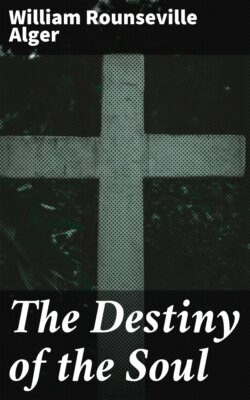Читать книгу The Destiny of the Soul - William Rounseville Alger - Страница 15
На сайте Литреса книга снята с продажи.
CHAPTER IV. ETRUSCAN DOCTRINE OF A FUTURE LIFE.
ОглавлениеALTHOUGH the living form and written annals of Etruria perished thousands of years ago, and although but slight references to her affairs have come down to us in the documents of contemporary nations, yet, through a comparatively recent acquisition of facts, we have quite a distinct and satisfactory knowledge of her condition and experience when her power was palmiest. We follow the ancient Etruscans from the cradle to the tomb, perceiving their various national costumes, peculiar physiognomies, names and relationships, houses, furniture, ranks, avocations, games, dying scenes, burial processions, and funeral festivals. And, further than this, we follow their souls into the world to come, behold them in the hands of good or evil spirits, brought to judgment and then awarded their deserts of bliss or woe. This knowledge has been derived from their sepulchres, which still resist the corroding hand of Time when nearly every thing else Etruscan has mingled with the ground.1 They hewed their tombs in the living rock of cliffs and hills, or reared them of massive masonry. They painted or carved the walls with descriptive and symbolic scenes, and crowded their interiors with sarcophagi, cinerary urns, vases, goblets, mirrors, and a thousand other articles covered with paintings and sculptures rich in information of their authors. From a study of these things, lately disinterred in immense quantities, has been constructed, for the most part, our present acquaintance with this ancient people. Strange that, when the whole scene of life has passed away, a sepulchral world should survive and open itself to reveal the past and instruct the future! We seem to see, rising from her tombs, and moving solemnly among the mounds where all she knew or cared for has for so many ages been inurned, the ghost of a mighty people. With dejected air she leans on a ruined temple and muses; and her shadowy tears fall silently over what was and is not.
